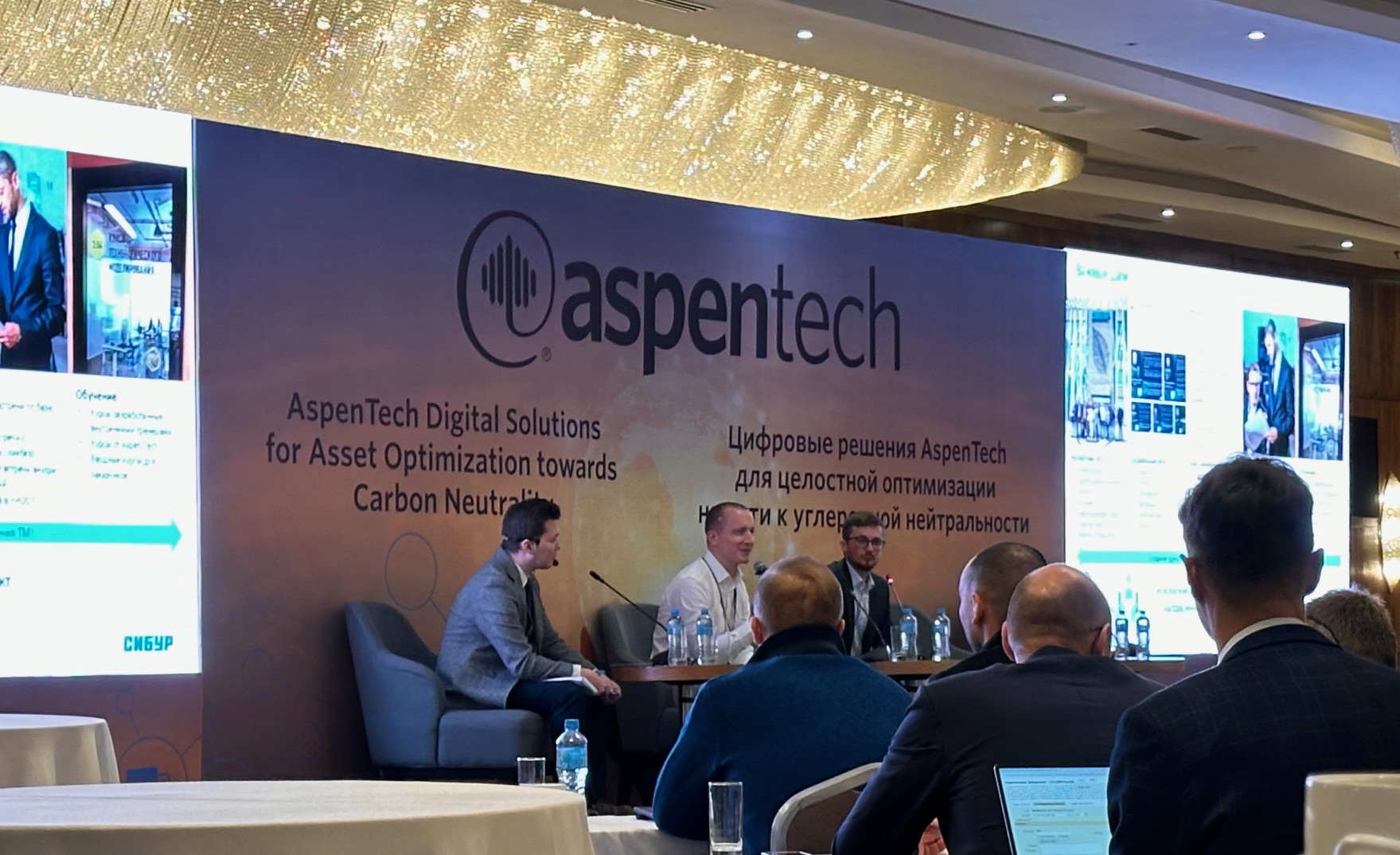The drive toward a more sustainable world must take a different shape in each geographic region and each economy.
Nowhere is this more interesting and relevant than the Caspian and Central Asia regions. This is a steadily growing area, especially in countries like Kazakhstan and Azerbijan. Each country is diversifying its GDP base, but several of these economies today strongly have growth tied to energy and resource extraction and conversion. And at the same time, the regional populations are striving to reach middle class benchmarks and becoming consuming nations.
Kazakhstan’s economy grew by 4.8% in 2023 and is expected to expand further by 3.1% in 2024, more closely following the strong growth rates of southeast Asian economies than those of neighboring Europe. The World Bank projects that Kazakhstan’s long term non-oil growth will stabilize at 3.5%.
With that as a backdrop, AspenTech sponsored a seminar recently, in Almaty, Kazakstan, “Digital Solutions for Asset Optimization Towards Carbon Neutrality.” We provided a meeting point and information exchange for customers from across Kazakhstan but also across the Caspian and Central Asia regions including Uzbekistan, Azerbaijan, Romania, Crete and others. More than 60 companies, representing AspenTech’s key customers across the region, converged for two days of meaningful and important information sharing and collaboration in late November. And not least of all, to enjoy a fantastic and festive dinner featuring local music and high quality, unique local food, including, strangely (not even the locals could explain it), some fantastic poached salmon at dessert time accompanying cakes and a variety of beverages.
Like the ever present and luminous Zailyskiy mountains ringing Almaty, energy and positivity flowed from the participants for the entire event and they all stayed at rapt attention from 8 a.m. until 5 p.m. for two days running.
It was my first visit to Almaty, and I’m pretty sure not my last. The views of the mountains through the downtown crowd of new and Soviet-era buildings are stunning. The weather was surprisingly mild (definitely not always the case!).
Spurred by the potential for business improvement that digitalization offers, the group of technical leaders represented at this event showed initiative, creativity and enthusiasm toward a shared goal of extending their progress and capabilities in the implementation of digital solutions.
The special nature of this seminar was the two-way communication that we and the attendees enjoyed. This was not a series of me-too presentations, but rather some best practices.
Event Highlights
AspenTech’s Chief Product and Sustainability Officer, Rasha Hasaneen, opened the two-day event with a recorded greeting a call to action for operational excellence and sustainability.
Eco Solutions Group (Ecojer), a group of environmental consultants to the Government of Kazakhstan, talked about climate change. Far from being a conceptual concern in the region, this has a local face. The Tuyuksu Glacier near Almaty has receded steadily over the past 60 years. This is now beginning to impact water supply and agriculture in Kazakhstan’s mountain regions. This formed a backdrop for the many other presentations during the two days, most of which related to operational excellence and energy efficiency, both of which help reduce carbon emissions and therefore climate change impact of local industry. Also joining us for a panel discussion was Ecojer’s president, Rustem Kabzhanov.
I provided the keynote address, talking about AspenTech’s vision for operational excellence, for using a born digital strategy for competitive advantage, about ways to navigate the world’s decarbonization journey, and some best practices examples.
There was an excellent presentation from an international and regional rapidly growing chemical company on their journey towards operational excellence. They described an impressive culture and organization built around technical proficiency and excellence that they feel is essential towards building a base of long-term operational excellence, flexibility and profitability. Several years ago, they began using AspenTech process modeling software for plant troubleshooting, design, retrofitting, process monitoring, and process optimization. In short, the goal was to use digital twins as the foundation of a digital transformation.

The result was development of a company strategy and structure for building up internal expertise in use of digital process modeling to improve plant troubleshooting and operations, which was identified as an organizational “best practice.” They are currently partly along a four year program to build up digital proficiency. They have gone from six process modelers with average proficiency in year one to developing a framework of four levels of technical proficiency, a pathway for a technical worker to progress, and a set of resources and curriculum. They now have over 150 engineers trained and qualified to use process modeling, with a goal of reaching over 250 within the next two years.
This organizational and digital transformation and upskilling pathway is not only regionally excellent, but world class.
Another presentation covered a world class implementation of value chain optimization over multiple refineries with the next generation planning software, Aspen Unified PIMS™. And another focused on use of rigorous process digital twin models that monitor and optimize unit performance, improving energy and production efficiency.
Other presentations covered upstream engineering modeling strategies to maximize use of surface facilities in hydrocarbon production; the programmatic use of conceptual cost estimating (Aspen Capital Cost Estimator™ software) to achieve excellence in CAPEX utilization and project execution; and around use Aspen Mtell® prescriptive maintenance for maximizing uptime in refineries.
But in a region hungry to become leaders in digital transformation, in building up the standards of technical skills, in reskilling engineers for energy transition and sustainable manufacturing, it is also the professional contacts and information sharing that are crucial. Yes, the different companies compete, but they also recognize the value in helping each other. Standing on each others’ shoulders, so to speak, to build up the overall technical sophistication in the region.
And there were opportunities to think outside the office and get inspiration. One customer told me, “We have done a lot of good digitalization work. But we are not yet born digital. That is our next step, we need to be born digital.” This surely inspired me!
.png?h=250&w=975&la=en&hash=FCDFBCB98A6FC8DDCC113E8693EBA8B6)

.png?h=415&w=675&la=en&hash=FE27F476367DACE7C950A5902B0CC9E9)
.png?h=415&w=675&la=en&hash=F924FF47DF9DA6DBF8CC8E9CAA3011D7)
Leave A Comment